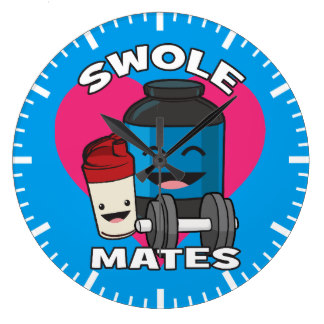What's a Great Protein Smoothie?
Strenuous exercise and weights training seem to go hand in hand with protein supplements, in particularly protein smoothies and shakes. This is because when we work out, the body is breaking down muscle and there is a need to increase protein which the body uses to repair and rebuild new muscle.
There are many different types of Protein powders available that can be used to make smoothies. These come in a variety of flavours that mix easily and can taste great.
A protein smoothie can provide a convenient, digestible and relatively cheap serving of protein compared to most whole food sources.
Protein powders that use ingredients like Stevia leaf, Cacao and Cinnamon for flavouring are the better, more natural choice.
However, we need to read ingredients labels on protein products carefully and steer away from products with ingredients that sound like they have been found in a rock on Mars. Beware, nutritional labels can be misleading and there is no sugar coating that while a protein product may claim to have no sugar, the sweetness could very well be derived from a chemical alternative that could cause more harm than good.
The Key Ingredients
A scoop of protein powder mixed with water is not a complete food as vital minerals, vitamins and amino acids are lost through the manufacturing process. By incorporating these components into our smoothie we can turn it from a quick protein fix to a complete nutritional powerhouse.
Protein with all its muscle building qualities is the super star component of any protein smoothie. Protein powder is convenient, and by using it with whole food protein sources, we can up the protein content of our smoothie and also reap the benefits of their natural vitamins and minerals.
Carbohydrates are the most important macro nutrient needed to replenish our depleted muscle glycogen stores. Carbohydrate rich foods will also spike our insulin and switch the body into an anabolic state. Fibrous Carbs will also help with digestion and the absorption of nutrients.
Natural Fats are important to replenish our intramuscular lipid stores as well as provide essential fatty acids to complete the smoothie’s nutritional profile. Many vitamins are 'fat soluble', meaning we can only get them by introducing them into our diet. Vitamin K is one such vitamin found in fat that provides benefits for cardiovascular and bone health.
Creatine is a naturally occurring compound found in the human body and is also found in red meat & fish. Creatine in our smoothie can help increase short-term endurance and strength. Creatine can also be stored for later use by our cells, creating an "energy reservoir" active individuals desire.
Glutamine is the most abundant free amino acid in the body. Amino acids are the building blocks of protein. With its positive effect on the body's nitrogen levels, glutamine assists with muscle repair and immune recovery.
Smoothie Timing
The supplements industry has shaped the perception that the optimal time to have protein is in a magical 20 minute window after we have trained because depleted muscle glycogen stores need to be replenished and broken down muscle cells need to be rebuilt through protein synthesis straight after working out.
While this holds some truth, the nutrients consumed post work out will take time to make their way to the small intestines to be absorbed and properly distributed.
While working out, the body is in a catabolic state meaning muscle cells are being broken down and muscle glycogen stores depleted. When in an anabolic state, the body is repairing and rebuilding broken down muscle cells. 2 hours into sleeping at night is when the biggest release of Growth Hormone occurs in our body and we are most anabolic.
Whilst a smoothie straight after a workout has some benefits, a smoothie in the late afternoon or the early evening can serve as a great gap filler between lunch & dinner as well as allow our body time to absorb the nutrients to put to work when at rest and more anabolic later in the evening.
Special Exception
When training first thing in the morning, a smoothie with the subsequent insulin spike can serve as a revitalising boost post work out.
Final Thoughts
A protein smoothie or shake is not a magic bullet that will transform the body overnight. Supplements need to be used in conjunction with an already fine-tuned diet, coupled with a healthy exercise and training regime.
The belief that your muscles will waste away if you do not have a protein straight after your work out is wrong.
Our entire daily food intake and lifestyle dictates how the body recovers and rebuilds itself. When we are doing breakfast, lunch & dinner right, only then will we see the true benefits of adding in a protein smoothie to our daily food intake.
Hopefully this has stirred up a few ideas on how to mix up your own smoothies. Let us know your favourite recipes and feel free to ask questions via the chat feature or the comments sections and stay up-to-date with the latest content on Facebook, Instagram, LinkedIn & Twitter, as we do our part in making the world a healthier place.
Speak to you soon





